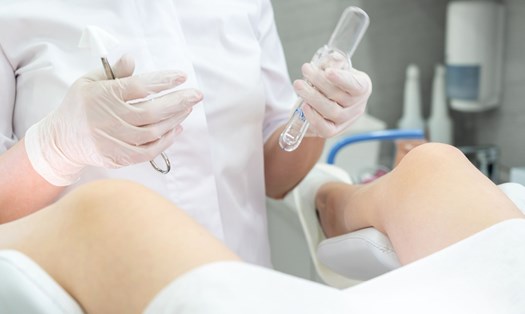Short menstrual cycle, lighter flow than normal
If you notice that your period is lighter and less frequent, don't worry too much, this is a normal sign of the body after the age of 30. Keep track of your cycle and discuss it with your gynecologist during your regular checkups.
Irregular menstrual cycle
Women often notice irregularities in their menstrual cycles soon after giving birth. After giving birth, women often have lighter, less painful periods because at this time, your cervix is dilated, allowing blood to flow more easily and uterine contractions are reduced.
Menstrual cramps
After age 30, many women tend to develop endometriosis, when the lining of the uterus grows outside the uterine wall. This is also the time when women are more likely to develop uterine fibroids (non-cancerous tumors inside the uterus).
Both conditions cause changes in your menstrual cycle, with fibroids often causing heavy and painful periods, while endometriosis is characterized by pelvic pain. If your periods suddenly become more painful, see your doctor.
Shorter menstrual cycles
After age 30, your cycle may become longer, up to 40 days, or it may become shorter, as short as 25 days. Doctors consider this to be one of the first signs of perimenopause. Most occur in your late 30s, indicating that your hormone levels have begun to decline.
Longer menstrual cycles
In your 30s, both age and hormonal changes lead to longer menstrual cycles, and if you notice these signs, you should see a doctor because sometimes this can be a sign of polycystic ovaries.
Stress can also be a cause of this phenomenon. The 30s often witness many changes in career and family leading to some major lifestyle changes that can lead to irregularities in the menstrual cycle.











